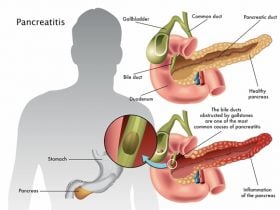Pancreatitis may occur in individuals who have excessive alcohol consumption and smoke cigarettes. People who are obese or have a family history of pancreatitis can also experience this condition. The inflammation of the pancreas can lead to several complications. Some of these include malnutrition, pancreatic cancer, kidney failure, and infection. Pancreatitis can either be acute or chronic. Chronic pancreatitis comes with very severe symptoms like upper abdominal pain, weight loss, and steatorrhea (oily and smelly stools). Fortunately, pancreatitis can be treated. For this reason, individuals should always consult the doctor if signs like persistent abdominal pain are observed.
Here are some of the helpful treatment procedures for pancreatitis:
Pain Medications

The use of pain medications doesn’t cure pancreatitis. However, it controls the pain that the individual feels. Please consult the doctor to get the most suitable pain medications to help through the condition. Some pain relievers can be purchased over the counter (OTC), while stronger ones can’t be bought, except the doctor provides a prescription. If the pain from any medical condition is severe, the doctor may prescribe medications like opioid drugs. Note that these drugs are only used to treat severe pain from abdominal pain and the likes. Generally, opioids are very risky and additive. These drugs create a pleasurable feeling that people may want to replicate, and this is why they are not OTC drugs. Another example of pain medication is corticosteroids. These drugs function by reducing the inflammatory response of the immune system and thereby relieving pain. Medical doctors usually prescribe these drugs for conditions like inflammatory arthritis. All drugs have side effects, so ensure that the side effects are discussed with the doctor.













